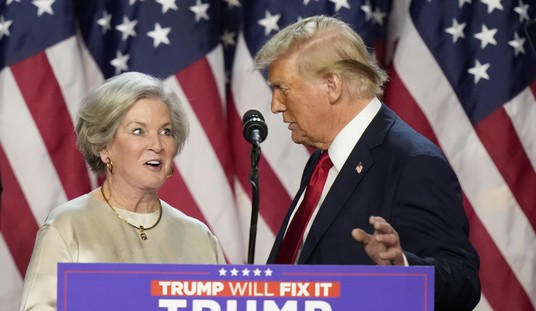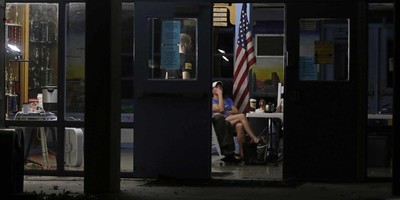A week later, Feinstein is more than halfway through New York Times reporter David E. Sanger's book "Confront and Conceal: Obama's Secret Wars and Surprising Use of American Power." She told me Wednesday, "You learn more from the book than I did as chairman of the intelligence committee, and that's very disturbing to me."
The Beltway has become a giant sieve. News reports outed a Pakistani doctor who had set up a phony vaccination program to obtain information on Osama bin Laden's location in Abbottabad. After an unusual proceeding last month, a Pakistani official found Dr. Shakil Afridi guilty of treason and sentenced him to 33 years.
Another leak revealed that a double agent had obtained a new and improved al-Qaida underwear bomb in Yemen. That leak, Feinstein said, endangered an ally and the individual who saved American lives by procuring the bomb.
Two recent New York Times stories hyped President Barack Obama's "will," "pragmatism over ideology" and hands-on role in drone strikes over Pakistan, Yemen and Somalia. Those stories also revealed telling details about a computer worm that targeted Iranian nuclear centrifuges and the process used to cull the "kill list."
Former CIA spokesman Bill Harlow told me the two Times stories "left a trail that Helen Keller could follow," one that leads to "a small universe of people." National security adviser Thomas E. Donilon talked on the record, while other officials spoke on condition of anonymity.
Recommended
The Obama administration has no trouble prosecuting low-level and midlevel leakers. Obama's feds have prosecuted six cases, double the number prosecuted by previous presidents. Yet the Department of Justice has been slow to respond to spin stories that play up Obama's national security acumen but also give away too much information.
This crusade can't be helpful to DiFi politically. Many in her liberal base regard accused leakers, such as Army Pvt. Bradley Manning, not as security threats but as heroic whistle-blowers. "As we all know," her political guru Bill Carrick conceded, "there are people who think they want to know all this stuff, and they don't want any restriction of information, no matter what the potential damage might be."
Sen. John McCain and other Republicans want an independent special prosecutor to investigate. Feinstein prefers Attorney General Eric Holder's decision to assign two U.S. attorneys to probe the leaks. For one thing, it's quicker.
But also, it's not clear that a special prosecutor could do much about leaks from political aides. Former Dick Cheney aide Scooter Libby was convicted not for leaking the identity of former CIA operative Valerie Plame but for lying about it. If aides say they didn't know something was classified or if they can show they were authorized to speak, it seems there is no crime.
At Friday's news conference, Obama said: "The notion that my White House would purposely release classified national security information is offensive. It's wrong." But what if aides leaked key intelligence accidentally on purpose?
Feinstein is working on new administrative procedures to curb leaks. Violators, she explained, might lose their security clearance -- or their jobs.
The real problem seems to be rot at the top. How do you impose the need for silence about underwear bombs or phony vaccines when White House stars are bragging about their exploits in The New York Times?
Remember the Libby trial. Washington clamored for Libby's scalp for a leak that did less damage than the likely fallout from leaks on thumb drives, double agents and vital assets. Considering what's at stake, there should have been 99 senators and one president standing with Dianne Feinstein.
























Join the conversation as a VIP Member